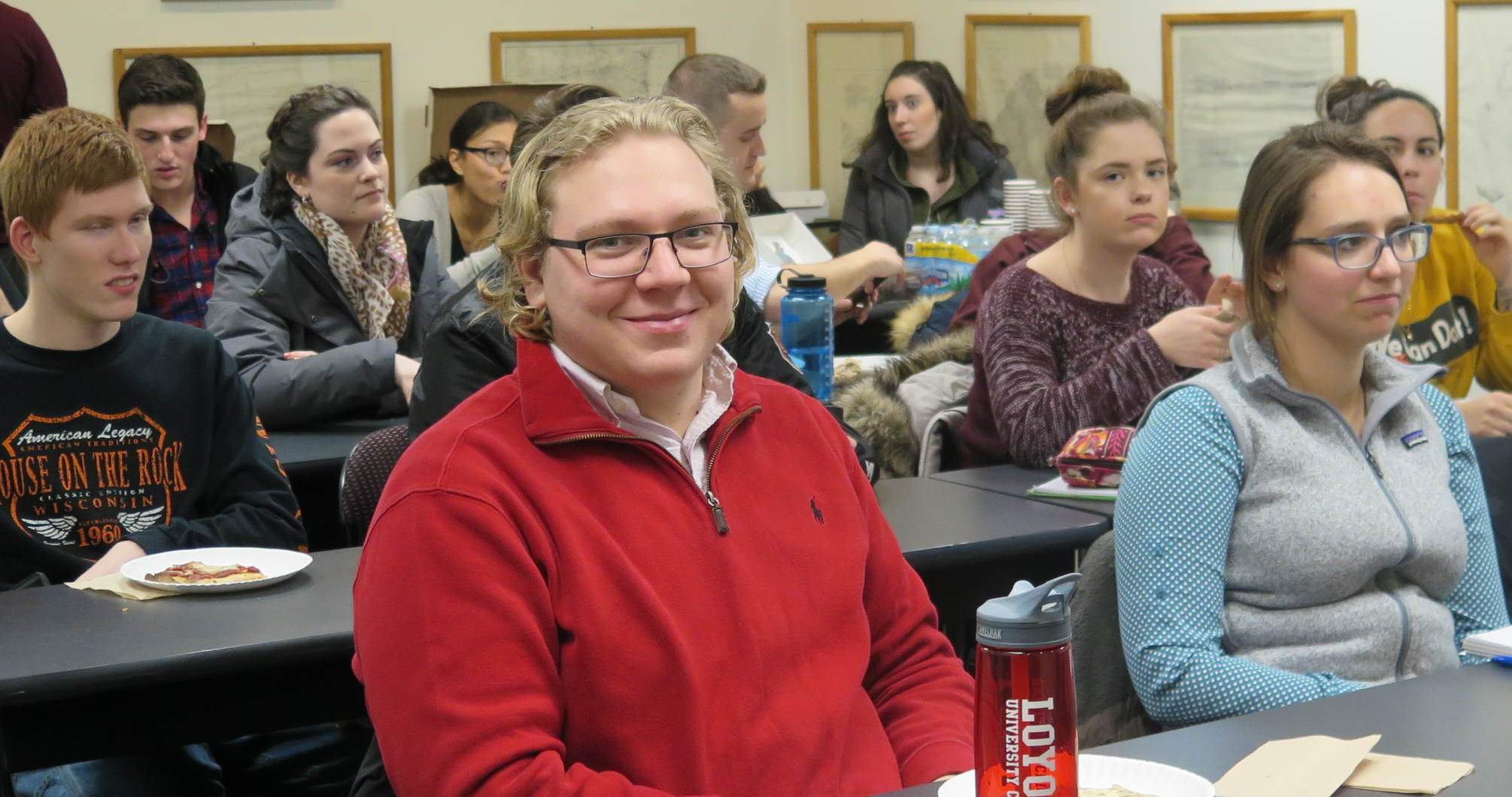archive
Announcing the New History Major

Staring in Fall 2018, the History Department is proud to launch a new and improved version of the History Major, featuring reduced core requirements, new 200-level courses, and customized concentration options!
Why Change the History Major Requirements?
Even while history remains a popular subject, recent years have seen a decline in enrollment in all humanities courses, including history. One big reason for this decline is in response to the recession of 2008, which led many to believe that students who wanted high-paying jobs would be better off focusing on “more marketable” topics. History departments all over the country have been grappling with the effects of this misrepresentation.
At Loyola, we decided to take a close look at our program and ask ourselves if the structure of the major and our current course offerings adequately meet the needs of today’s students. We noticed that the major requirements were relatively basic but still, somehow, quite rigid. It didn't advance the strengths of our department and it didn’t give you a sense of identity and choice. Worse, it simply reinforced the deadly assumption that History is just names and dates, geared only towards those who seek to teach.
History can do better. The History Department is composed of excellent teachers and award-winning scholars. Students get a lot out of the classes we offer, including skills that are marketable to nearly any career path: persuasive speaking, effective writing, critical thinking, and the ability to construct compelling arguments. But we weren’t doing a very good job giving you the opportunity to explore their specific interests. We weren’t giving you the chance to discover for yourself that the question is not what can you do with a history degree; it's what can't you do.
We approached the problem by looking at what our majors say they like/dislike about the program and our current strengths as a department, as well as best practices from other Loyola departments and peer institutions.
The New History Major
Our goal was to re-tool the major to allow you more freedom of choice while preserving rigor; a structure that allows interested students to pursue relevant concentrations while delivering a proper grounding in historical skills and methods.
The new major consists of three main changes, all of which will make it easier for current and future students to put together a plan of study that best serves their personal interests and professional aspirations:
- We have reduced the core requirements from 4 to 2, making it easier to switch to the History Major.
- We have introduced several new 200-level lecture courses including: Barbarians; Crusades; Medieval Inquisition; Tudors & Stuarts: Blood, Sex, and Treason; Pirates and Slavery; and The History of Sexuality in the U.S. These courses will serve as middle step between introductory 100-level courses and the more rigorous, research-based 300-level seminars.
- We have made the major more flexible and have introduced optional concentrations. These concentrations are a great way to focus your path through the History major, build a sense of community, and make connections. If you choose to pursue a concentration, you’ll also be paired with a faculty advisor who will help support your chosen path.
These changes will help bring out what is most valuable about a history major: a set of versatile real-world skills applicable to any industry. A degree in history can open many doors. The New History Major will better lead you to those opportunities.
